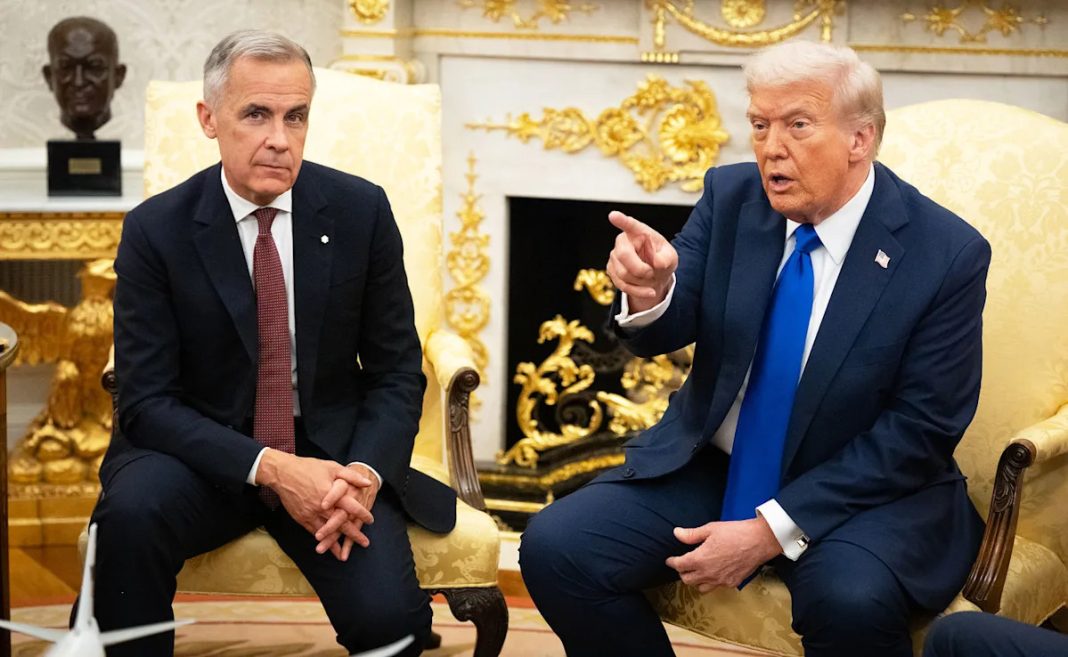Months of trade talks between the United States and Canada came to abrupt halt last week for the dumbest of reasons: Officials in a Canadian province aired a television ad that hurt Donald Trump’s feelings.
The commercial wasn’t especially provocative — it noted Ronald Reagan’s concerns about trade tariffs — but it apparently triggered the incumbent American president, who falsely accused our neighbors to the north of launching a “fraudulent” and “illegal” scheme to sway Supreme Court justices.
None of this made any sense at all, but on Friday, the Republican kept the offensive going. “They cheated on a commercial,” he said, referring to the Canadians, adding, “I guess it was AI or something. They cheated badly. Canada got caught cheating on a commercial, can you believe it?”
In context, this was a rhetorical question, but for the record, the answer was, “No, I can’t believe it, because none of these claims are true.” (The spot correctly reflected that Reagan defended free trade, though in the same set of remarks, the Republican explained his decision to impose duties on Japanese goods. At no point did Ontario’s ad rely on artificial intelligence.)
A day later, Trump went considerably further. The New York Times reported:
President Trump doubled down on Saturday in his feud with Canada over a television ad that used audio of former President Ronald Reagan denouncing tariffs, saying he would punish the country with an additional 10 percent tariff on its goods.
The commercial in question has already been pulled from the air, but according to the president, it wasn’t taken down fast enough, which in turn justifies a new round of trade tariffs.
As the dust settles on this bizarre series of events, there’s a temptation to explain recent history and point to the unambiguous evidence that Reagan did not, in reality, love tariffs (no matter how many times Trump claims the contrary). There’s a related temptation to note that the Trump White House, just months ago, acknowledged that Trump’s views on the issue were plainly at odds with Reagan’s, despite the incumbent’s latest protestations.
But let’s not miss the forest for the trees: An increasingly erratic president just unilaterally imposed economic penalties on one of the United States’ closest allies and key trading partners because a television commercial — which was accurate and is no longer airing — hurt his feelings.
For his part, it fell to Treasury Secretary Scott Bessent to try to defend these ridiculous developments. On CBS’s “Face the Nation,” the Cabinet secretary insisted the ad constituted “interference” in “sovereign matters.”
I can appreciate why this is a difficult policy to defend, but Bessent probably should’ve come up with better talking points. For one thing, there was nothing wrong with the ad. For another, Trump’s tariffs affect other countries, and it’s tough to blame them for pushing back.
But even if we put those relevant details aside, Trump spent much of the year arguing that Canada should abandon its national status and become part of the U.S. If there’s going to be a conversation about “interfering” in “sovereign matters,” it’s hardly unreasonable to argue Ottawa enjoys the high ground.
This article was originally published on MSNBC.com

